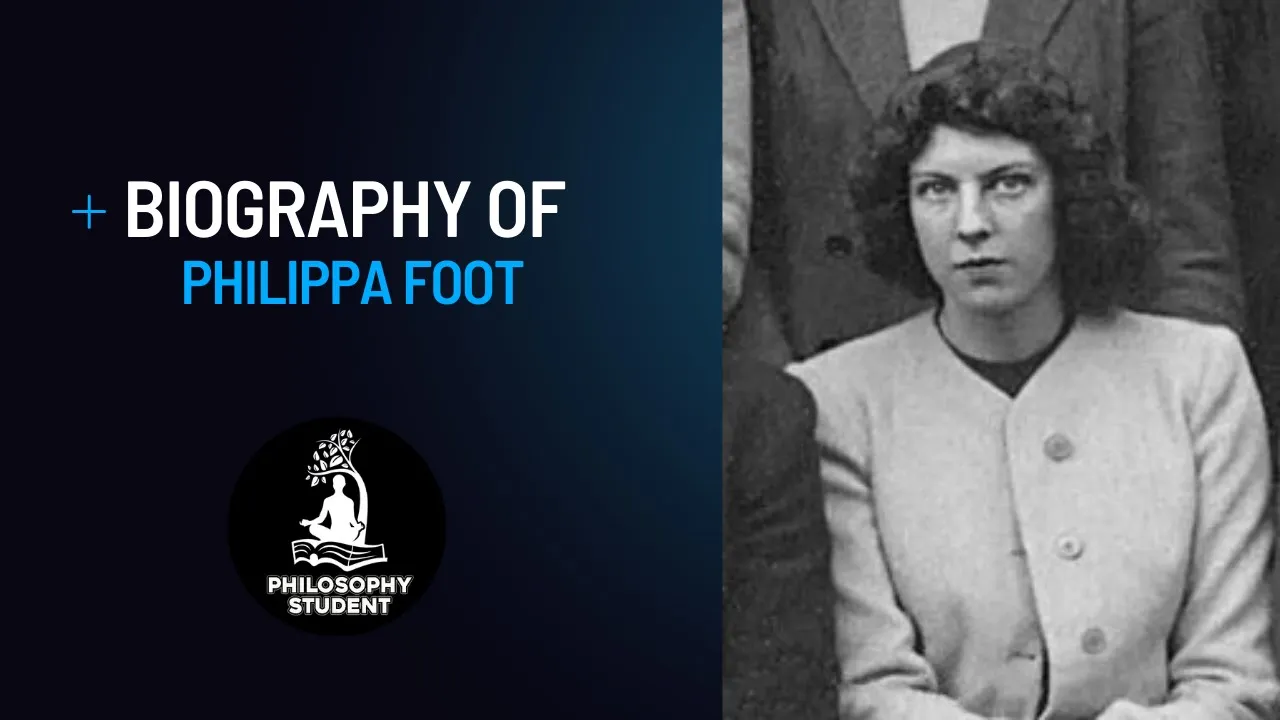Philippa Foot was a founder of modern virtue ethics, a theory of normative ethics that focuses on the outcomes of action and is founded in Aristotelian ethics. She devoted her career exclusively to moral philosophy, including issues in metaethics, moral psychology, and applied ethics. Foot is perhaps most widely known for having formulated the Trolley Problem, which asks why it is deemed permissible to steer a trolley aimed at five people toward one person but is deemed impermissible to kill one healthy man for the purpose of using his organs to save five people who would otherwise die.
Born Philippa Judith Bosanquet on October 3, 1920, in Owston Ferry, Lincolnshire, Foote grew up in Kirkleatham, North Yorkshire, England. Her mother, Esther, was a daughter of President Grover Cleveland, and her father, William, ran a major Yorkshire steel works. Foot studied philosophy, politics, and economics at Somerville College, University of Oxford, where her first tutor was philosopher and theologian Donald MacKinnon and where she met Iris Murdoch and a small group of other female philosophers. After earning a BLitt in 1942, with a thesis on Kant, she worked in London during the remainder of World War II. At war’s end, she married military historian M. R. D. Foot, from whom she was divorced in 1960.
After the war, Foot also returned to Somerville as a teacher and began a fellowship there in 1949. In 1969, she came to the United States and, until 1976, held visiting professorship at the Universities of California—first at Los Angeles and then at Berkeley—and at the University of Washington, Princeton University, Stanford University, and the City University of New York. In 1976, she became a professor at University of California, Los Angeles, from which she retired in 1991. Returning to Oxford, she completed a monograph titled Natural Goodness. She died on her ninetieth birthday, October 3, 2010.
Philippa Foot’s career as a moral philosopher can be said, quite simply, to have been driven by the question, “Why be moral?”
In her early years, the answer was that the “received virtues”—courage, temperance, justice, and the like—were cultivated rationally. It was therefore rational to act according to them. In short, moral judgment is associated with rationally cultivated traits, including virtues. This sets “just action” apart from other forms of action.
As she matured, Foot argued differently, defining morality as a system of hypothetical imperatives and concluding that just and benevolent acts turn on contingent motivations. Paraphrasing Kant, she observed: “we are not conscripts in the army of virtue, but volunteers.”
Later in life, as she wrote in Natural Goodness, practical reason emerged as the overriding driver of moral action. Dissatisfied with both Kantian and utilitarian ethics, Foot defined a form of evaluation that predicates goodness and defect only to living things. She argued that moral evil is a natural defect. From this point of view, she explored practical rationality, erring conscience, and the relation between virtue and happiness, concluding the book with a critique of Nietzschean immoralism.




































